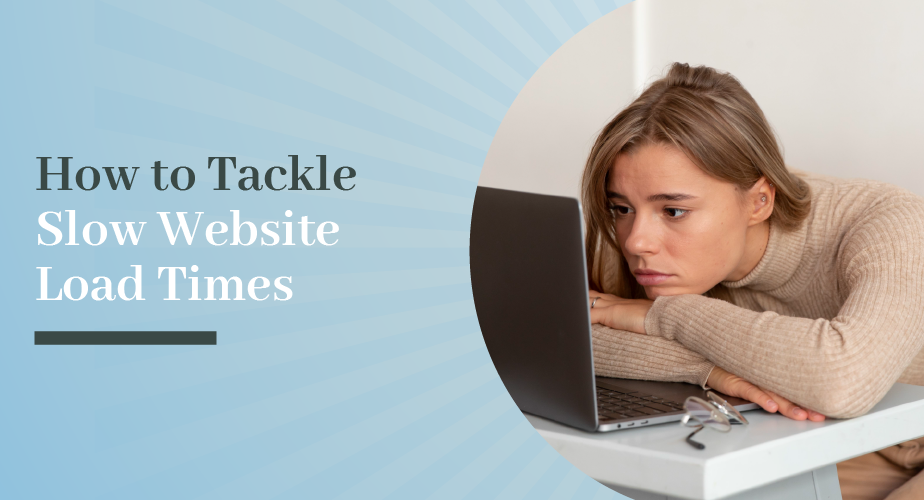Imagine this: you're excited to check out a new website that a friend recommended. You eagerly click the link, ready to dive into what it has to offer. But then, you wait. Seconds pass by as you watch the loading icon spinning endlessly. Frustrated, you close the tab and move on. This experience is unfortunately common for many internet users, seamlessly affecting site rankings and satisfaction.
Fast website load times are more than just a luxury—they're necessary for keeping visitors engaged. People expect web pages to load in the blink of an eye. If not, there's a good chance they'll leave, looking for faster alternatives. This means businesses not only lose potential customers but might also feel the hit in search engine rankings. Let’s explore how slow websites become an issue and how you can tackle these challenges.
Understanding the Causes of Slow Load Times
A slow website is like trying to run with heavy bags—it just doesn’t get you where you need to be efficiently. Various factors can clog up your website’s speed, but let's break down the most common culprits.
- Large Images and Media Files: Have you ever noticed how a page filled with lots of photos or videos takes forever to load? Large images can significantly slow down a site. While they make pages visually appealing, they need to be optimized to avoid bottlenecks.
- Excessive HTTP Requests: Your browser makes a lot of requests to load different parts of a webpage, like scripts or images. Each request can slow down the loading process. Think of it like ordering a meal with many different dishes that each take time to prepare—a few items can come quickly, but ordering a lot makes the process much slower.
- Unoptimized Code and Scripts: Bulky or sloppy code can be a real drag when it comes to loading web pages. Clean and optimized coding ensures the vehicle—your website—moves down the road smoothly.
- Outdated Plugins or Themes: Using outdated tech on a website can be problematic. An old plugin or unrefreshed theme may not just slow things down but could also introduce vulnerabilities. Keeping everything updated is like tuning an old car to make sure it runs efficiently.
Once you know these barriers, it's much easier to come up with solutions. The more efficiently a website runs, the happier your visitors will be—even happier than a kid in a candy store. But knowing there are hurdles doesn’t have to be daunting. By shining a light on these aspects, you can take the first step in speeding up your online presence.
Optimizing Your Images and Media Files
One of the simplest ways to boost your website's speed is by optimizing images and media files. Large, uncompressed files slow down loading times. You might think high-resolution images are a must, but they often come with a trade-off. Compressing them effectively can maintain quality while reducing size.
Try using tools like JPEG Optimizer or TinyPNG, which compress images without sacrificing their visual appeal. Additionally, choose the right formats—JPEG for photos, PNG for graphics with transparent backgrounds, and GIF for animations. This thoughtful selection ensures the best balance between quality and performance. Optimizing image dimensions to fit the exact space they occupy on the webpage is another useful tip. It prevents browsers from taking longer to resize them during page loading.
Streamlining Code and Scripts
Just like a neat and tidy room is easier to navigate, clean code makes your website more efficient. Large chunks of redundant or unoptimized code can bog down load times. Minifying your CSS, JavaScript, and HTML files helps remove unnecessary elements like spaces and comments, making the code leaner.
Consider using tools like CSS Minifier and Javascript Minifier to streamline your scripts. Also, test your website regularly to identify any scripts or plugins that could be consolidated or eliminated. By ensuring that every piece of code serves a purpose, you create a smoother experience for your visitors. Clean code isn't just about speed; it also reduces the chance of errors that affect a website's functionality.
Reducing HTTP Requests
Reducing the number of HTTP requests your site makes can greatly improve performance. When countless requests occur for images, scripts, and stylesheets, they slow things down. Aim to bundle these elements. Combine multiple CSS files into one or use CSS sprites to load multiple images in a single request.
Implementing lazy loading for images and other content can also make a difference. This approach only loads images when they appear in the user's viewport, rather than on the initial page load. It's like a restaurant serving dishes just when customers are ready to eat, rather than all at once.
Regular Maintenance and Updates
Think of your website as a dynamic entity that benefits from regular check-ups. Regular updates to themes and plugins ensure compatibility and security. Similar to updating software on a smartphone to access new features, revisiting your site's components keeps things running smoothly.
Check for updates or patches from theme and plugin developers to address any issues that might arise. Plus, cleaning up any unused plugins or themes simplifies the backend and boosts speed. Regular website check-ups help catch potential problems before they become serious, ensuring a seamless experience for users.
Wrapping It Up
Addressing slow website load times might seem like a big task, but it’s manageable with the right strategies. Tackling site speed leads to happier visitors, better search rankings, and ultimately, a more successful digital presence. Taking the time to optimize images, clean up your code, reduce requests, and commit to maintenance can make all the difference.
Your website is a working asset, and attentive care keeps it performing its best. By taking these proactive steps, you ensure both your visitors and your bottom line benefit. Whether you're an established business or just getting started, a fast-loading website is a win for everyone.
With your website holding immense potential, ensuring it runs at optimal speed is key to a successful online presence. Take strides toward improvement by exploring a top web development firm that excels in providing tailored solutions. Check out Dingus & Zazzy's successful projects and see how we can elevate your site’s performance to keep visitors engaged and satisfied.







